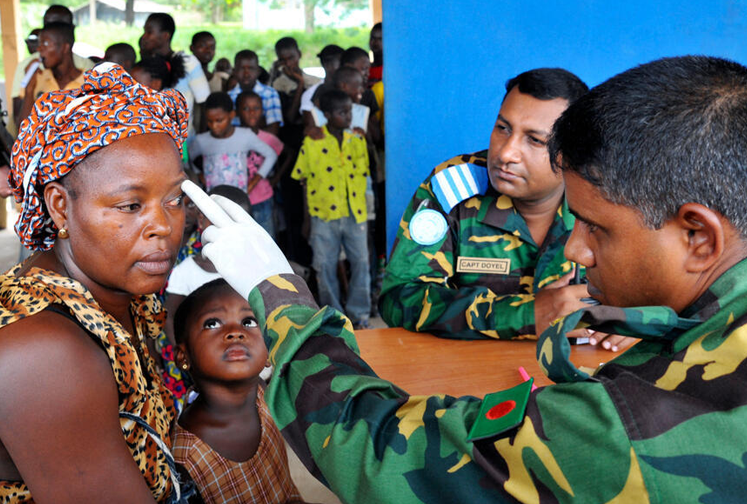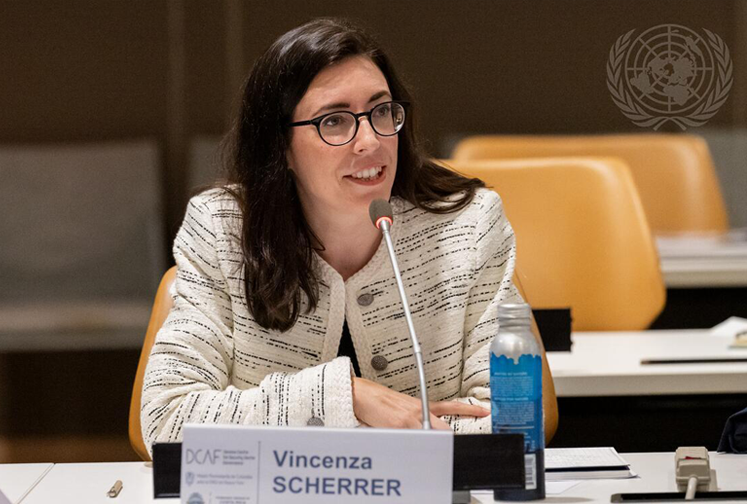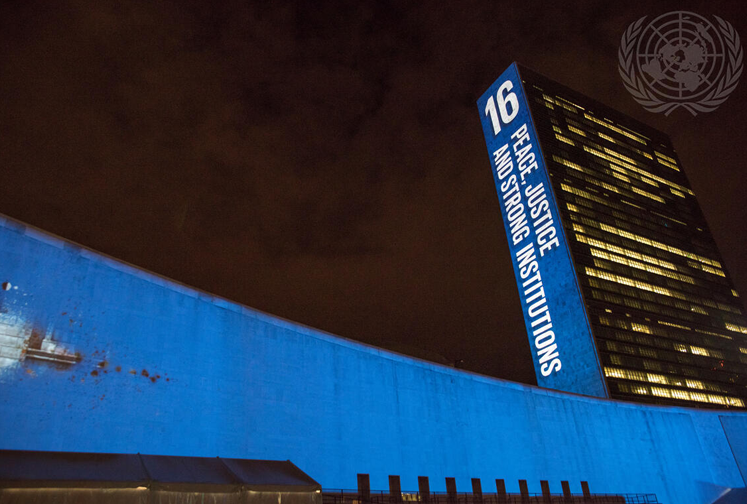Security and development: finding a common language on good governance
Inequality, exclusion, and injustice drive conflict and, in turn, undermine development efforts. They are also more likely to occur where the security sector is politicized, corrupt, and ineffective due to a lack of oversight and accountability. This is why good governance of the security sector is vital for preventing violence, creating peace, and achieving the Sustainable Development Goals.
There are many actors engaged - like DCAF - in promoting good governance of the security sector, but this is not where investments are systematically being made by the international community. The reality is that reforms aimed at strengthening governance often fall through the cracks. The reasons are many: a lack of resources for long-term endeavors; a reluctance to engage with what can be a politically risky sector; or a preference for more technical ‘train and equip’ activities.

A well-managed and accountable security sector that has the confidence of the population
is essential to creating the peace and security that underpin sustainable development.
Photo: UN/Basile Zoma
STRUCTURAL GAPS BETWEEN SECURITY AND DEVELOPMENT INITIATIVES
The UN-WB Pathways for Peace report observes that security sector reforms are often addressed separately from other institutional reforms. This is a missed opportunity to be more cost effective in terms of rolling out public administration reforms – often led by development actors – which may also be applicable to the security sector. It also means that we are de facto accepting a lower bar for security sector institutions compared to other parts of the public sector.
Linkages between security and development also matter when it comes to funding. The UN Secretary General’s Report on SSR recognizes that ‘Official Development Assistance’ (ODA) for SSR is “insufficient to start bridging the funding gaps in conflict-affected States”. Moreover, it notes that security reforms are “not included in the integrated national financing frameworks for sustainable development.” Consequently, without being able to tap into development funds, there is concern that important governance-driven reforms of the security sector will not be funded, even when called for in national prevention, peacebuilding, and development plans.

Vincenza Scherrer at a side event of the High-Level Political Forum in New York on July 13, 2023. The event, co-organized by DCAF, brought together international actors from the peace, security, and development communities to identify good practices to help bridge the security-development divide and accelerate the implementation of SDG 16 (Peace, Justice, and Strong Institutions). Photo: UN/Manuel Elías.
HOW CAN WE SUPPORT BETTER LINKAGES?
First, we must continue to advocate that the security sector is an integral part of the public sector. In the words of former UN Secretary-General Kofi Annan, an important aspect of good governance is the reform of the public sector – “including the security sector, which should be subject to the same standards of efficiency, equity and accountability as any other public service”.
Second, we need to make it less sensitive for development actors to engage on security issues. We know that many elements of SSR are political, particularly when we are seeking to build commitment for negotiated changes in the composition and architecture of security institutions towards a more equitable distribution of power and resources. But if we wish to make SSR less sensitive for development actors, then we must also highlight how SSR is about improving service delivery to the population - and as such is an integral element of public sector reform. So far, traction has mainly been limited to the conduct of public expenditure reviews of the security sector.

SSG/R initiatives support the Sustainable Development Goals through SDG16 which is to promote peaceful and inclusive societies for sustainable development, provide access to justice for all and build effective, accountable, and inclusive institutions at all levels. Photo: UN/Cia Pak.
Third, we must clearly demonstrate the importance of good security sector governance in achieving the Sustainable Development Goals. Good governance is not only important in mitigating the risk of violence that undermines development, but is also vital to ensure that a bloated and ineffective security sector does not divert resources and focus away from development objectives.
Perhaps most importantly, we need to start speaking the same language. In this respect, the definition of good governance is vital. The SSR community has tended to talk about good governance in terms of ‘accountability and effectiveness’, or through the broader lens of transparency, rule of law, participation, and respect for human rights.
However, if we are looking at it through a development lens, and particularly through the lens of leaving no one behind as advocated in the SDG framework, then an important focus on ‘inclusiveness’ is missing. While all SSR policy frameworks of course highlight the importance of inclusiveness, this revitalized understanding of good governance is not yet an integral part of the international community’s approach to SSR support.
SPEAKING THE SAME LANGUAGE ON GOVERNANCE
For this we should turn to the 11 principles of governance adopted by UN ECOSOC. With a focus on accountability, effectiveness, and inclusiveness, this framework provides opportunities to reflect on SSR priorities through both a prevention and a development lens. Importantly, it highlights that inclusiveness is more than participation; it requires equal access to security as well as equal opportunities to join the sector. It also entails the need for inter-generational equity to balance the short-term needs of today’s generation with the longer-term needs of future generations.
For SSR support, for instance, this requires thinking about long-term budget priorities so that the pensions of security sector personnel can continue to be paid. Otherwise, we know that these individuals are likely to seek other sources of revenue, including by preying on the population they are meant to protect. The concept of inter-generational equity is also an interesting one for reflecting on the role of youth in the security sector, and the role the security sector should play in mitigating climate change for the benefit of future generations.
DCAF is currently supporting the UN SSR Unit to devise a security sector risk assessment methodology that draws on the ECOSOC principles to ensure that SSR support is better designed for prevention. This will lead to a more comprehensive approach to understanding the deficits in governance that need to be addressed through political and programmatic engagement. It also promotes complementarity between security, peacebuilding, and development partners as called for in the UN Secretary General’s Report on SSR. Indeed, complementarity must start with more coherent policies, and this includes using the same language and frameworks.
 Share on Facebook
Share on Facebook Share on Linkedin
Share on Linkedin Share on Twitter
Share on Twitter